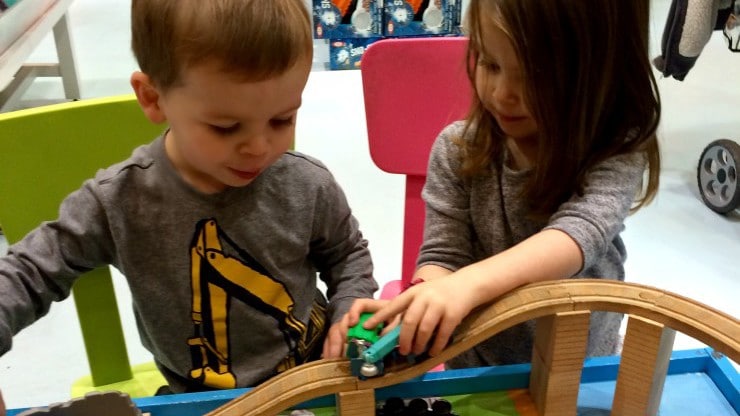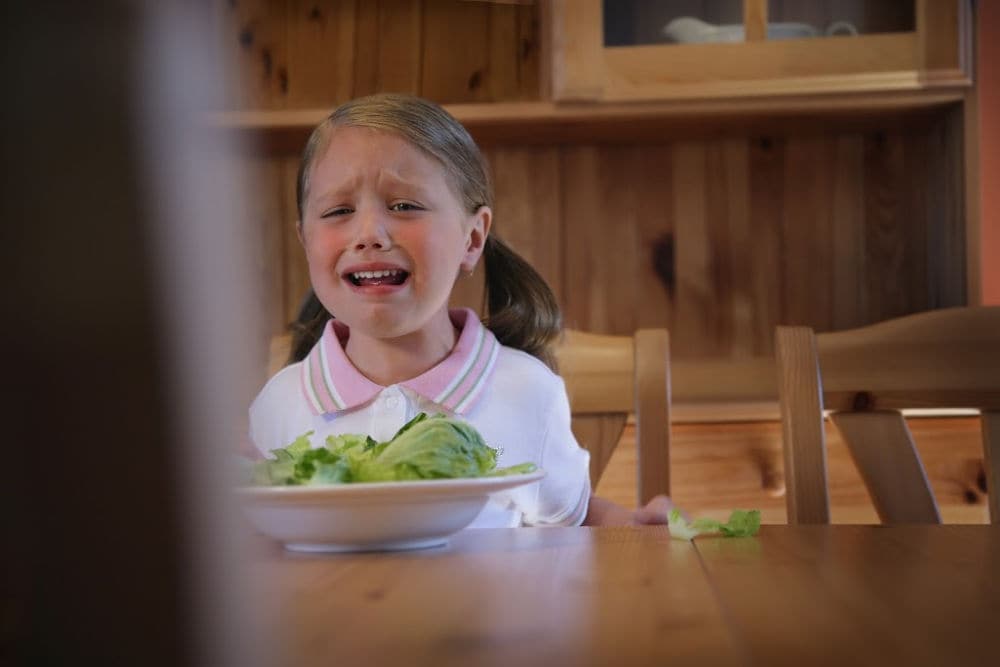There’s nothing worse than feeling like you’re letting your child down. The good news is those bad parenting moments don’t define our children or us for that matter. Inside find out what research says is the best way to resolve our parenting mistakes and get back on track.
Recently, I broke one of the cardinal rules of parenting. My husband and I got into a heated argument in front of the kids.
I was beyond tired after waking a half dozen times throughout the night with a teething toddler. I couldn’t brew coffee fast enough and felt that the only way I could begin to face the day was with a vat’s worth of caffeine coursing through my veins.
That’s when it happened.
As my husband put on his navy blue down-filled jacket, he started in about our post-Christmas finances. Maybe it was because of the night of broken sleep the night before. Or maybe I was worn down after a dynamic Holiday season. Either way, my body responded before I could process a thought. His words no sooner left his mouth than my jaw clenched. My breath became shallow.
“I can’t deal with this right now.”
He persisted.
I felt couldn’t handle our discussion at that exact moment. He felt we just needed to cover a few things with me before he went to work.
My emotions started to swirl. Before I knew it I yelled. That’s when I saw saucer-sized brown eyes poke up from underneath our solid oak coffee table.
My stomach sank as the blood ran from my face. I couldn’t believe I had been unkind to my husband in front of my kids.

The truth about when I fail…
There are a few general reasons I fail as a parent. The biggest contributors include being inconceivably tired, preoccupied, or simply being unsure of what to do. Sometimes I yell. Other times, I give too many warnings or am too harsh. For example, sometimes I mistakenly think my kids are acting out only to realize their hungry. When I make these mistakes, I’m letting down the most important people in my life. And when I catch myself making repeated mistakes, I worry that I am causing irreparable damage.
Not only that but when I’ve had a bad parenting moment, I am ransacked with guilt. And the truth is, the internet only reinforces this. Reading articles about the damages of yelling underscores my feelings of inadequacy and concern.
Related: Stop Yelling Using One Simple Trick
The Good, The Bad, The Ugly about those bad parenting moments
Let’s start with the bad. Aside from weighing on our conscience, we know that those bad parenting moments run inherent risks. Specifically, if these behaviours become habitual, they risk having long-term consequences for both the child and the parent-child relationship.
Take yelling for example. Research shows that children with parents who yell chronically are more likely to experience mood disorders or antisocial tendencies. A study on aggressive verbal discipline and parenting found that the more parents yelled, the less thirteen-year-olds listened. In fact, one year later, the children who experienced the most aggressive verbal feedback from their parents had the most behavioural issues.
It’s no surprise that if we find ourselves arguing in front of the kids, getting too engrossed in our work, or yelling at our kids with any regularity, we run the risk of disrupting our children’s emotional foundation.
The good news about those bad parenting moments.
After a bad parenting moment or series of them, we feel guilty and can be ridden with self-doubt. Add to that the fact that the internet is laden with reminders of how we should and shouldn’t be parenting, and we have the perfect recipe for feeling like perpetual failures.
The good news is there is some reassuring research out there.
In his lecture called The Shaping of our Emotional Selves, Dr Allan Schore explains that, even in securely attached mother-child relationships, there are “frequent moments of misattunement that rupture the attachment bond.” He states that the key is not to strive to be perfect parents because that is, of course, unattainable. In terms of understanding how imperfect parents are as a whole, one study found that mothers were only able to appropriately understand their infants’ distress 30% of the time. The “good enough” parent isn’t perfect but understands how to repair the damage done when he or she creates undue stress to the child.
Related: How to get your kids to listen without yelling
How this applies to everyday parenting
According to Schore, “the key is to enter into interactive repair.” Specifically, we need to understand how our children feel after we have made a parenting mistake and work to reduce the child’s stress levels. When we enter into repair with our children we decrease their cortisol levels and re-establish feelings of calm and connectedness.
Some ways to achieve this include:
- Opening up the lines of communication – talk about what the child witnessed and offer to answer any questions. Use age-appropriate language and do not discuss more than what they need to know.
- Apologizing – not only does this help decrease a child’s feelings of stress, it also models good behaviour.
- Coming up with a plan for next time – for example, “The next time I start to feel like I’m going to yell, I want you to let me know to take a deep breath.” Not only will this help the child feel empowered, it will also act as a reminder in the heat of the moment.
- Spending quality one on one time – whether it’s doing a puzzle, lego, or heading outside for a game of catch, children will feel more secure and less stressed when we
Conclusion
When we have bad parenting moments, it weighs on us and our kids. It’s easy to start to feel like a bad parent the more we fall short. Behavioural science shows that there are no perfect parents. In fact, the best parents get it wrong a lot. When mistakes are made, all we can do is work with our children to make the situation better and try harder next time.
After my husband’s and my argument the other day, I asked all three kids to join me in our bed. As I pulled the duvet up over us, I let them know I was sorry for arguing. I told them that, if my husband and I needed to discuss something serious when the kids are awake, we would go into our bedroom and resolve the issue away from them.
Both of my big kids smiled as my strong-willed daughter spotted an opportunity. “I can remind you.” I had to laugh, “Perfect. I appreciate the help.”













1 comment